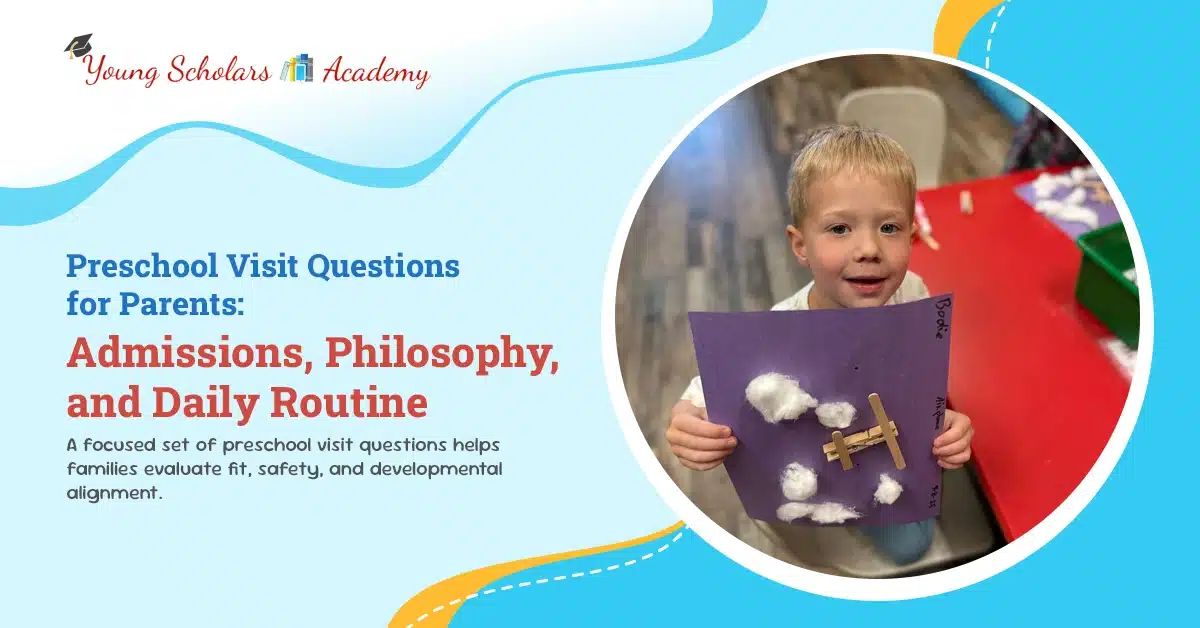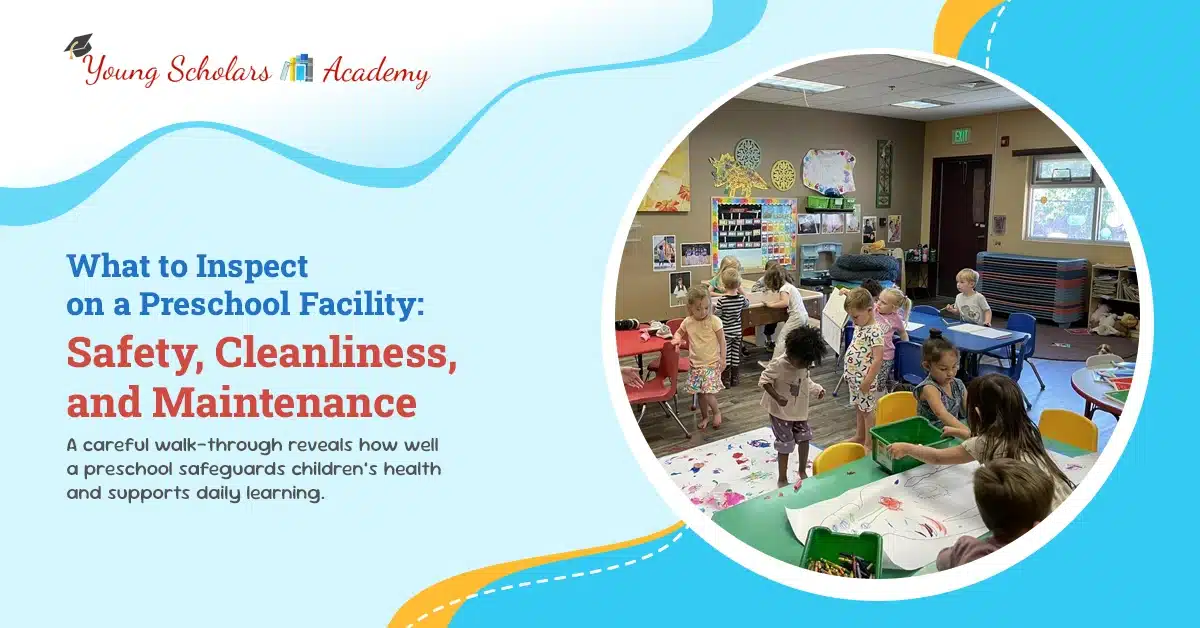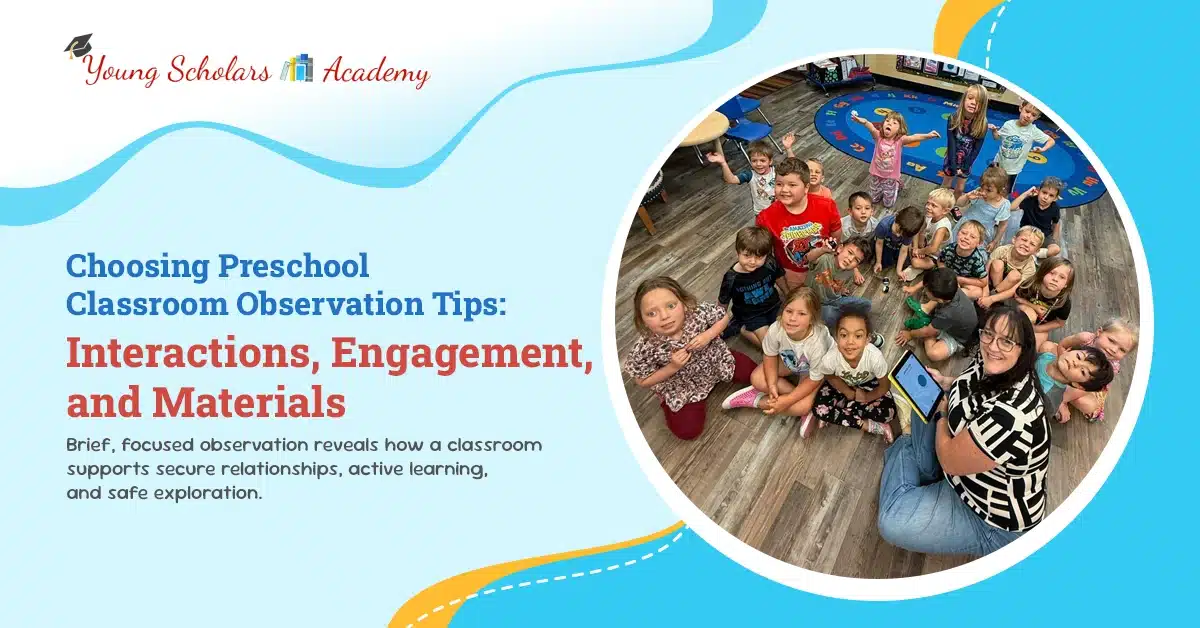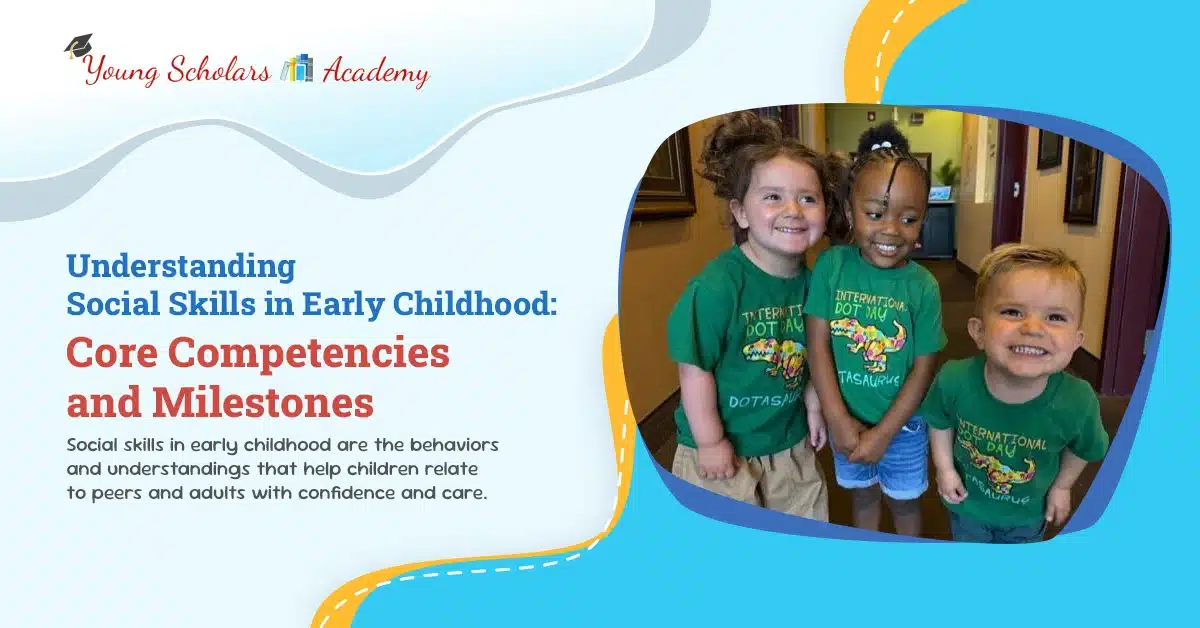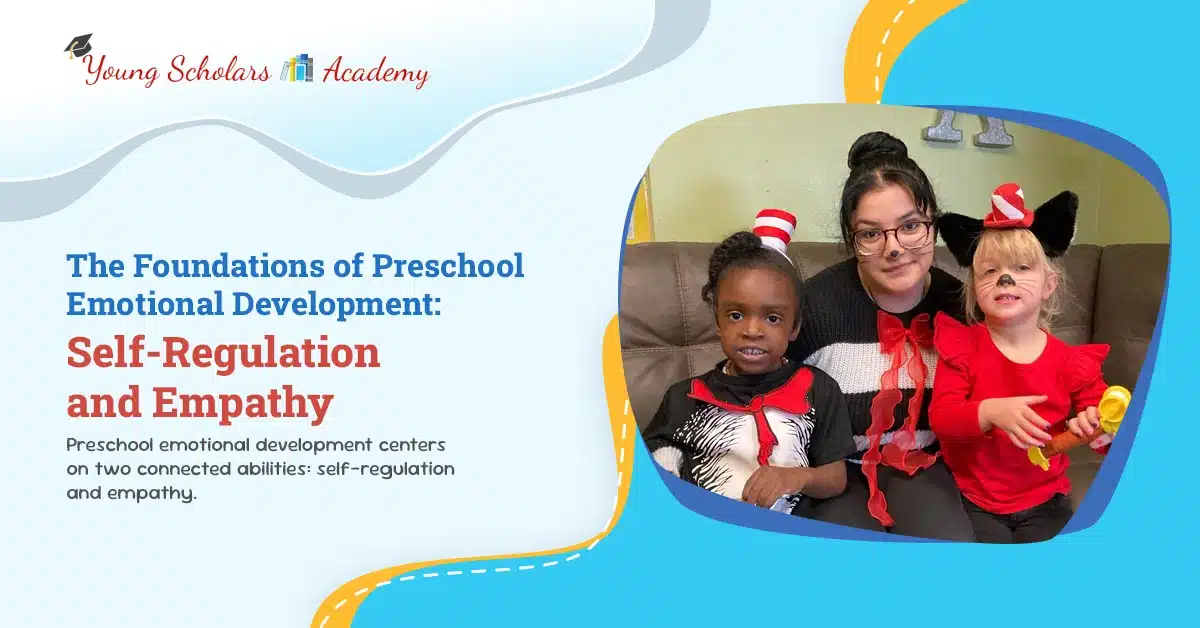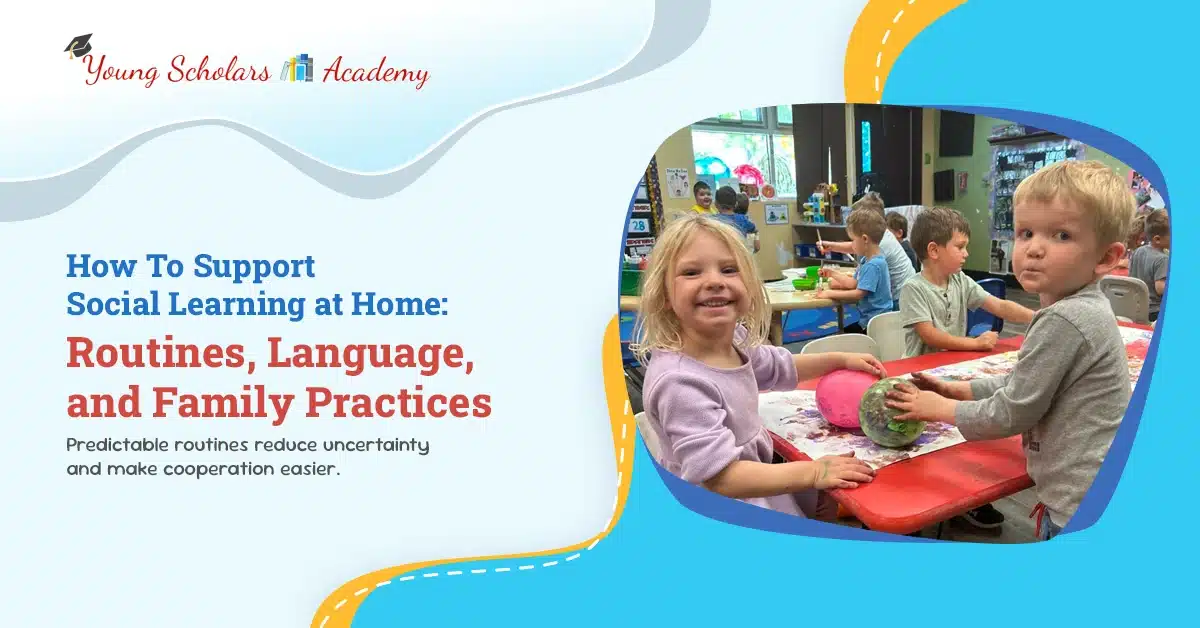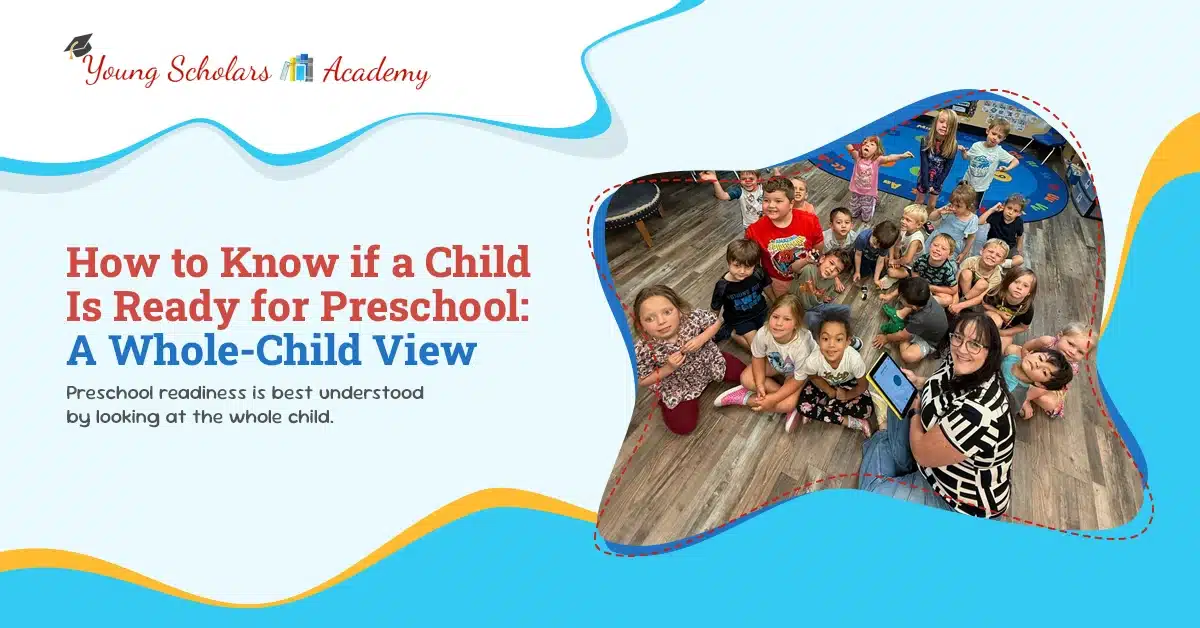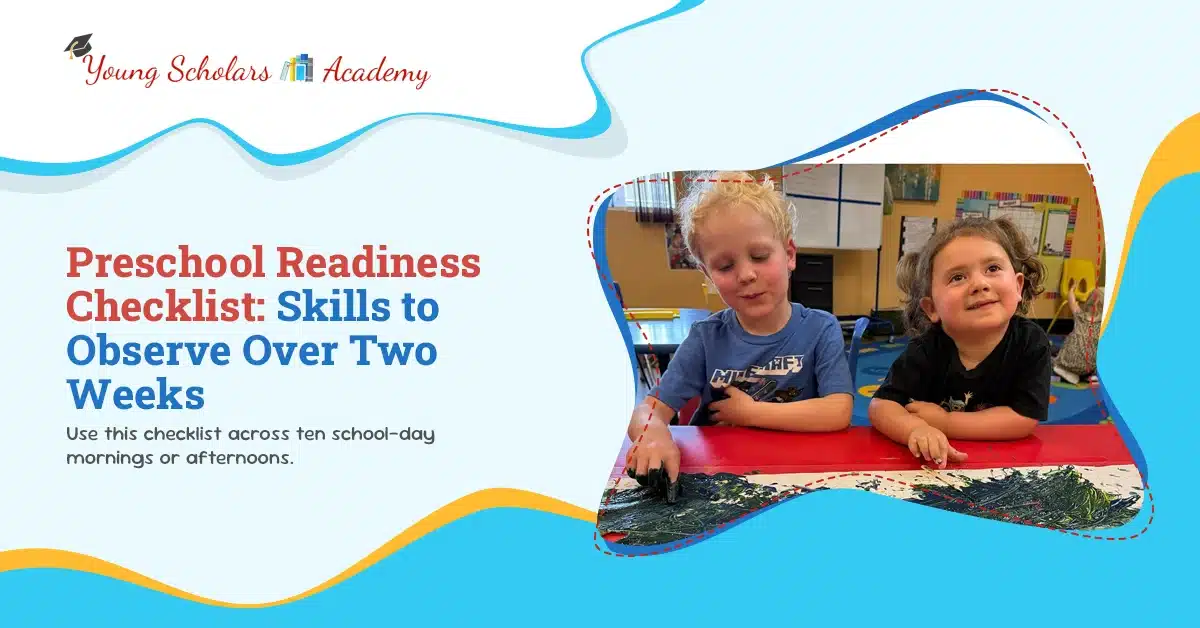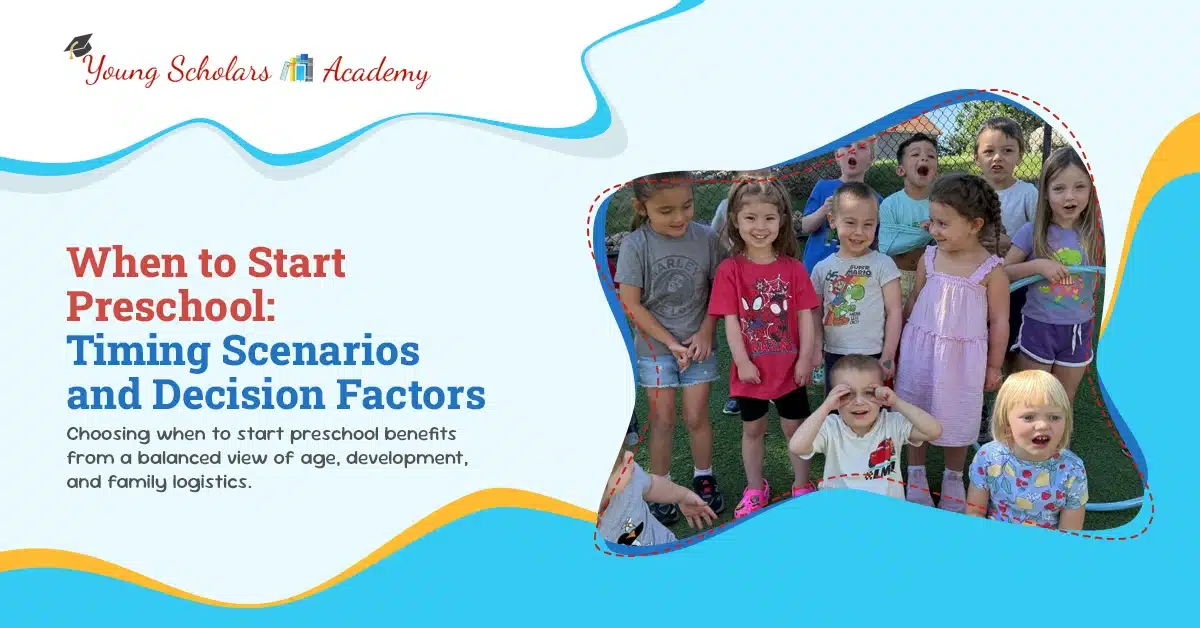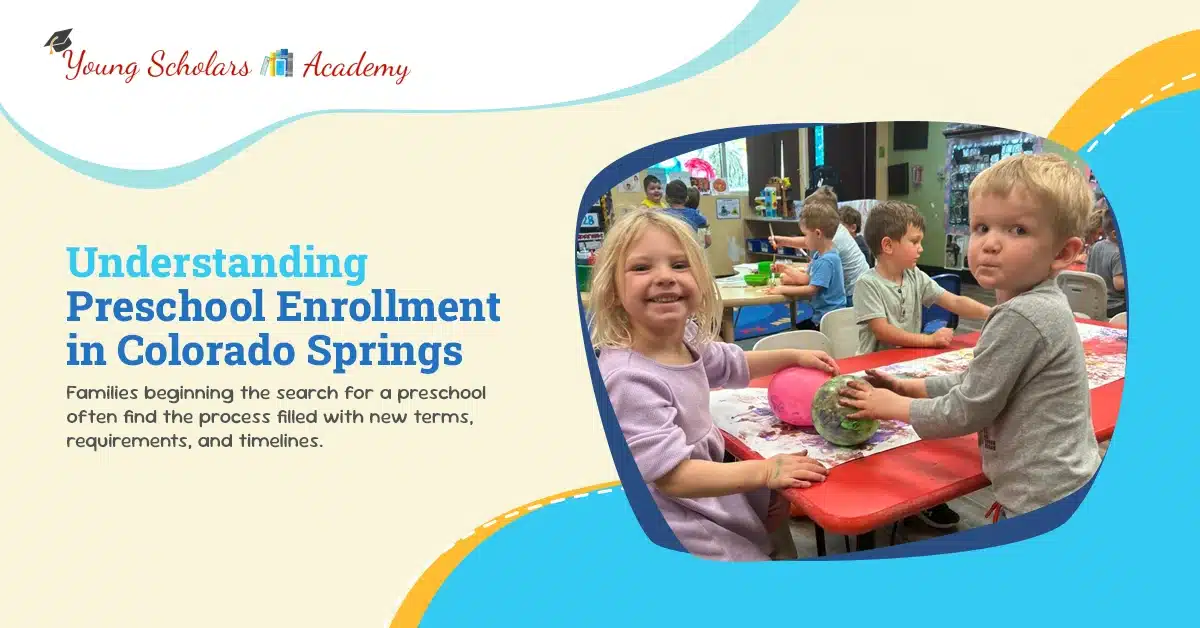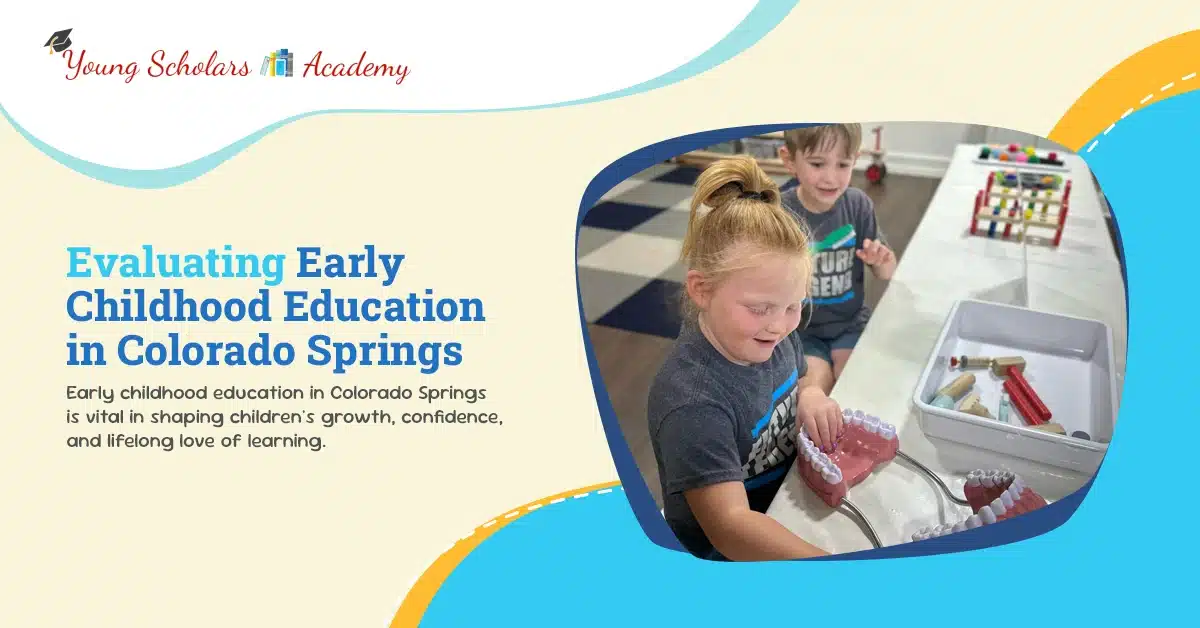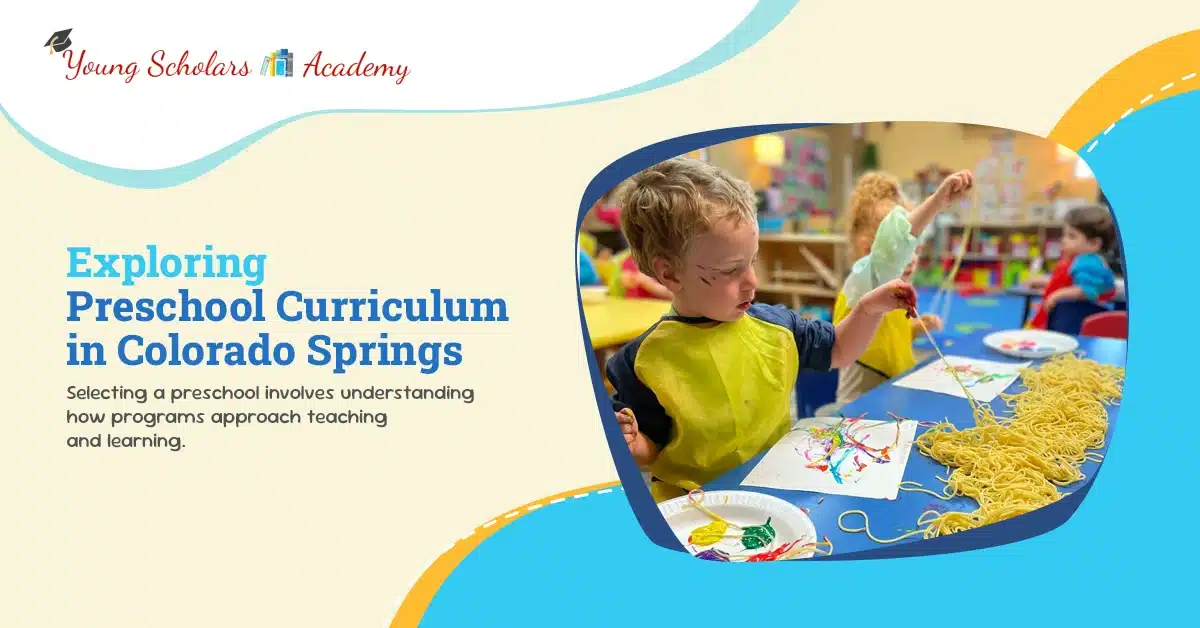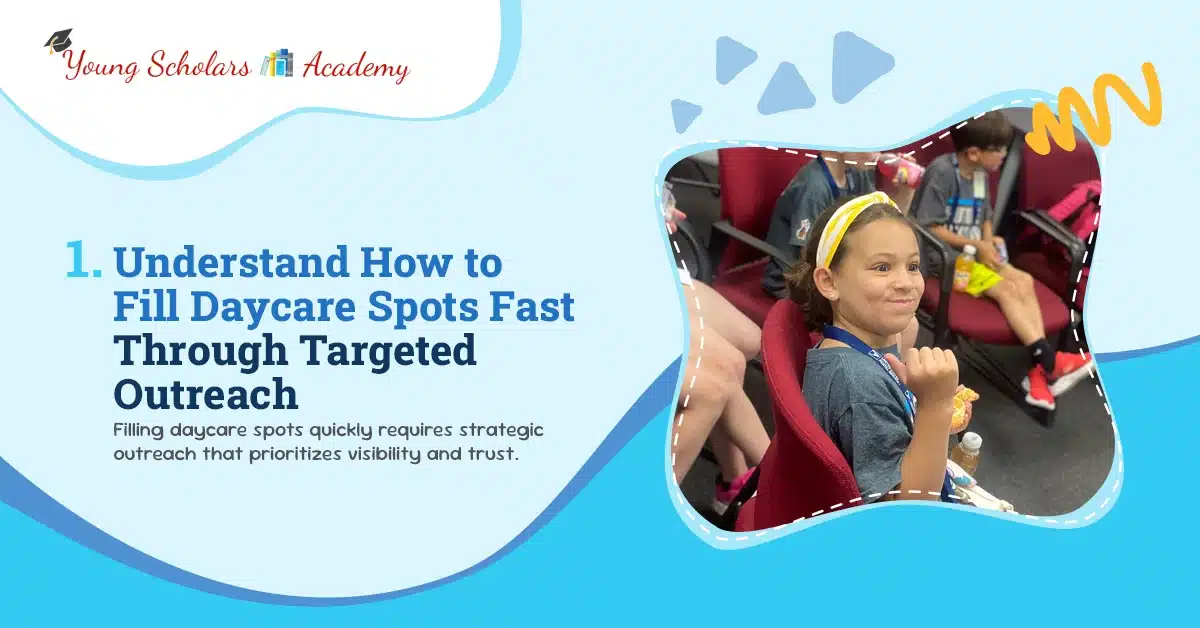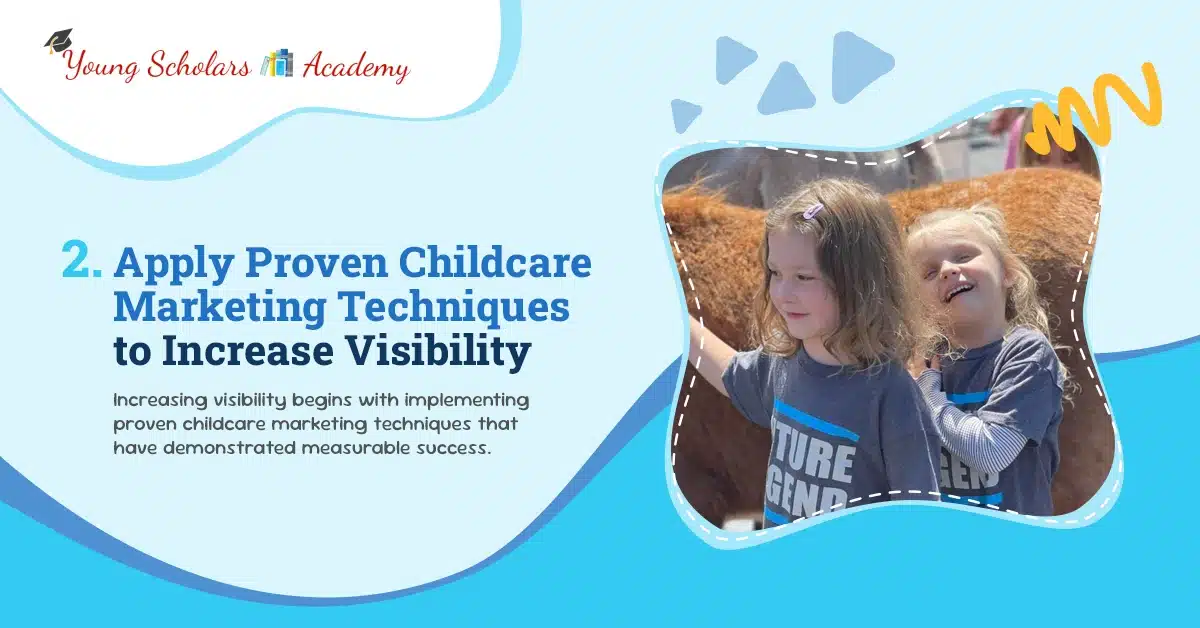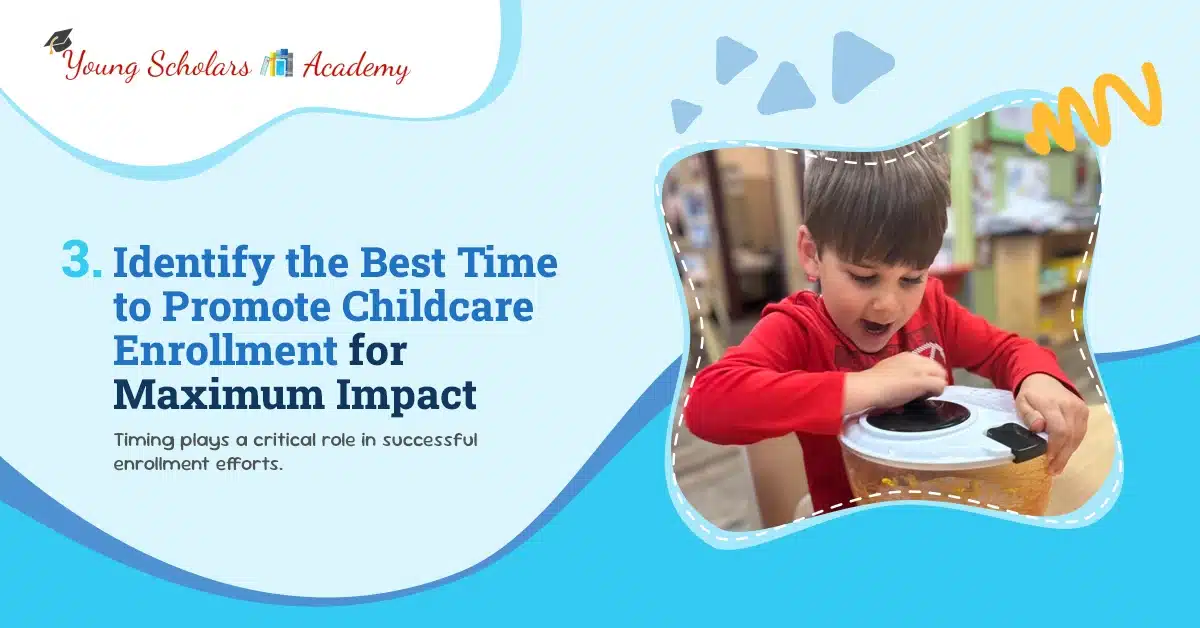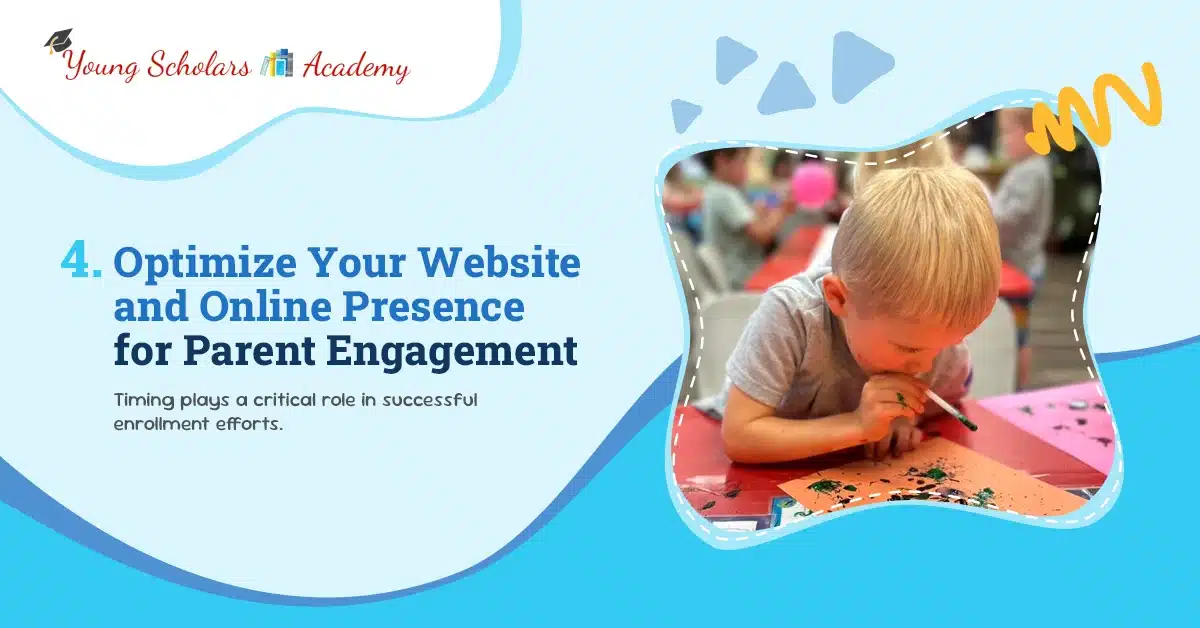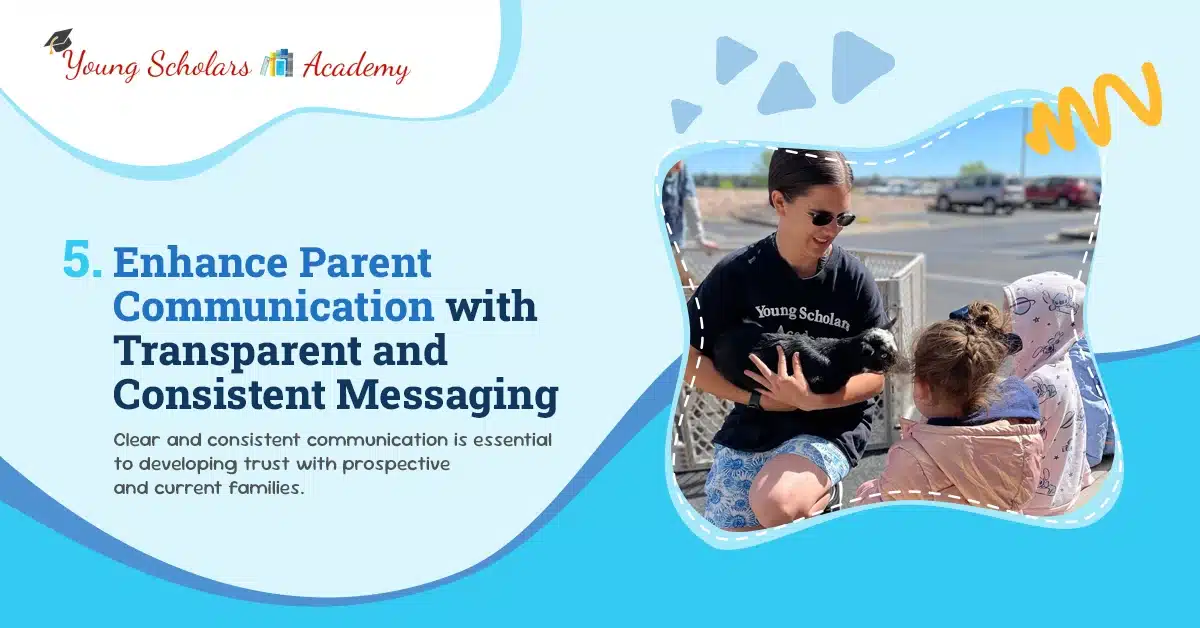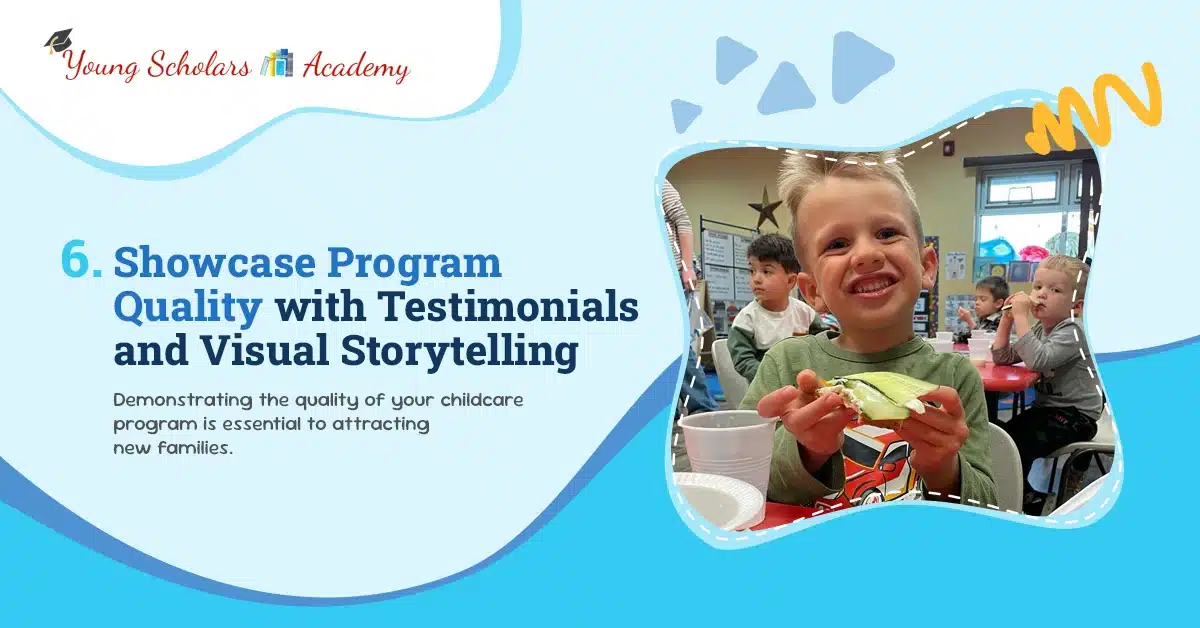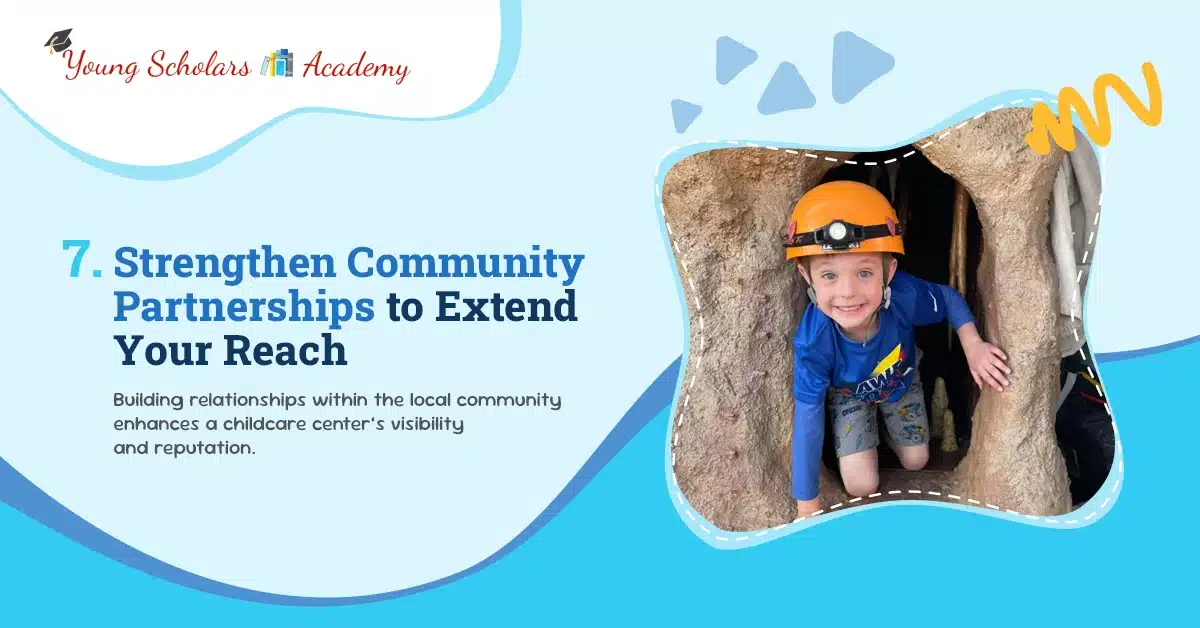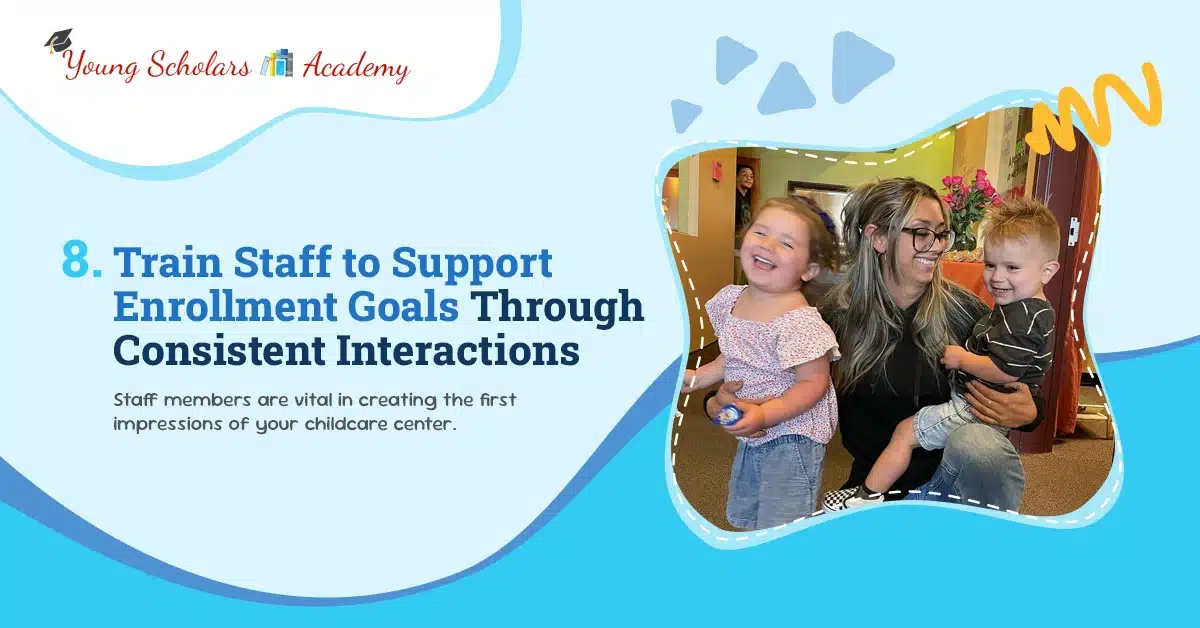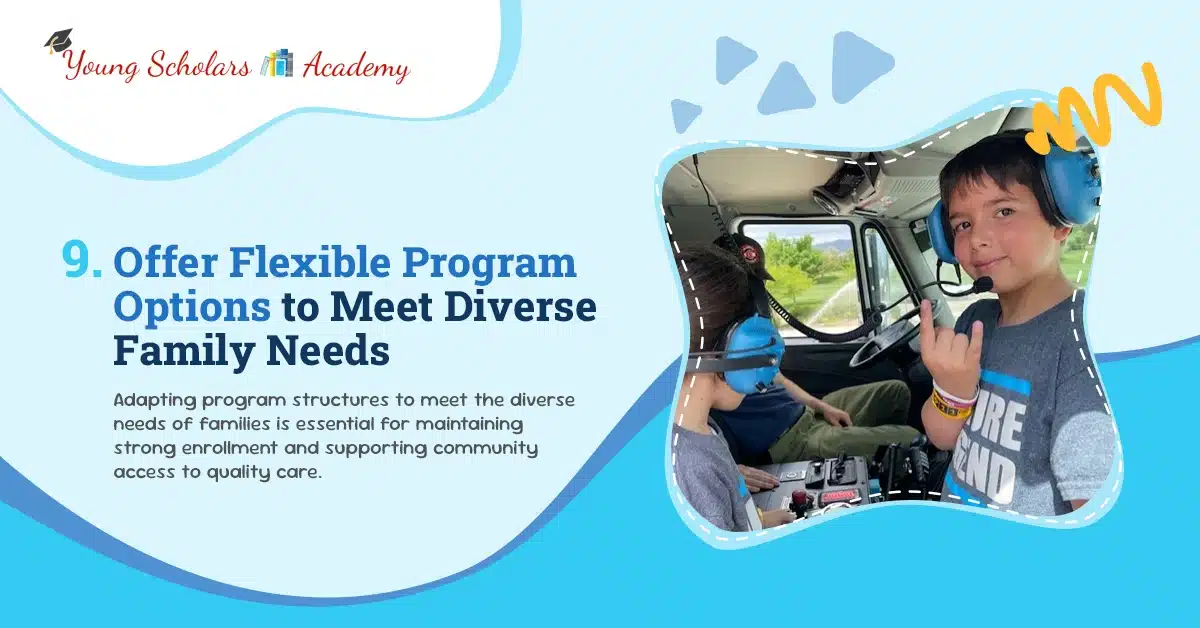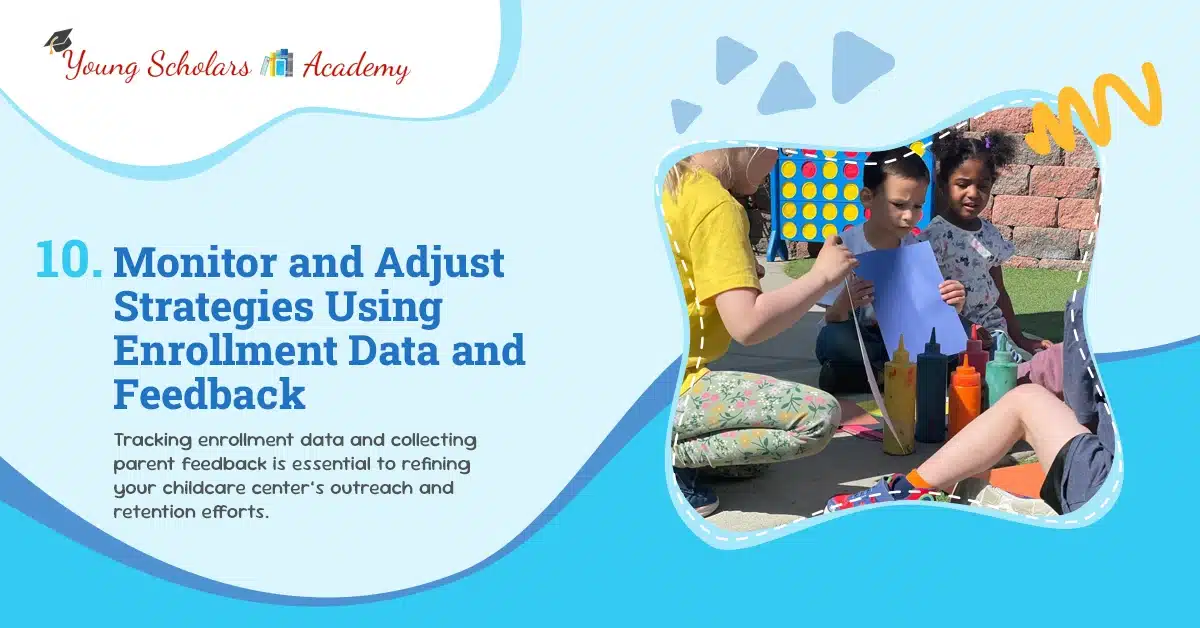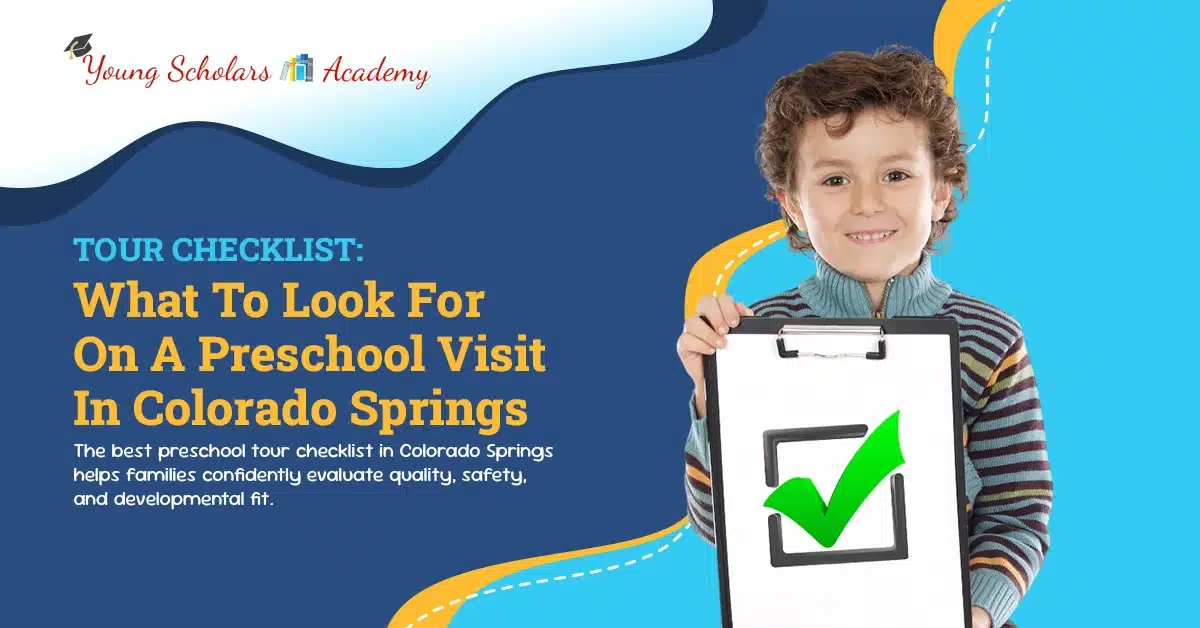 The best preschool tour checklist in Colorado Springs helps families confidently evaluate quality, safety, and developmental fit. During a visit, observe secure entry procedures, cleanliness, and well-maintained classrooms. Review teacher qualifications, staff-to-child ratios, and evidence of warm, responsive interactions. Ask about curriculum goals, daily schedules, and how play, literacy, math, and science are integrated with social-emotional learning.
The best preschool tour checklist in Colorado Springs helps families confidently evaluate quality, safety, and developmental fit. During a visit, observe secure entry procedures, cleanliness, and well-maintained classrooms. Review teacher qualifications, staff-to-child ratios, and evidence of warm, responsive interactions. Ask about curriculum goals, daily schedules, and how play, literacy, math, and science are integrated with social-emotional learning.
Note outdoor spaces, gross-motor opportunities, and materials that support exploration. Confirm licensing, accreditation, health policies, and allergy and medication procedures. Learn how the school communicates with families, supports diverse learners, and tracks progress. Align these findings with your child’s needs and your family’s priorities.
Preschool Visit Questions for Parents: Admissions, Philosophy, and Daily Routine
A focused set of preschool visit questions helps families evaluate fit, safety, and developmental alignment. Use the guide below to confirm how enrollment works, teaching supports growth, and the daily flow promotes engagement and calm.
Admissions and Enrollment Policies
Clarify timelines, availability, and requirements, then verify how communication and documentation are handled. Request transparent tuition details and confirm schedule options that match family needs.
Ask:
- Application window, age cutoffs, and start-date flexibility
- Waitlist priorities, update frequency, and placement process
- Tuition, deposits, refunds, and financial assistance
- Required records (immunizations, forms, residency) and deadlines
Educational Philosophy and Learning Approach
Ensure the philosophy connects play-based learning with literacy, math, science, arts, and social-emotional growth. Confirm how teachers differentiate instruction and document progress.
Ask:
- Curriculum framework and yearlong scope and sequence
- Examples of child-led inquiry and teacher-guided lessons
- Assessment tools (portfolios, checklists, observations) and frequency
- Family conferences, progress reports, and goal setting
Daily Routine, Transitions, and Classroom Flow
Predictable routines support security and attention while allowing flexible responses to children’s needs. Review a sample schedule and observe transitions, movement, and outdoor play.
Ask:
- Balance of whole-group, small-group, and individual learning
- Visual schedules, transition cues, and calm-down spaces
- Snack, meal, and nap procedures and hygiene practices
- Integration of movement, music, and outdoor time
Staffing, Ratios, and Family Communication
Qualified, consistent staffing underpins safety and learning. Verify ratios, credentials, professional development, and understand how the school partners with families.
Ask:
- Staff-to-child ratios, class sizes, and room coverage
- Teacher education, training in behavior guidance, and onboarding
- Background checks, supervision policies, and substitute plans
- Daily updates, messaging platforms, conferences, and monthly newsletters
Document answers, compare them across schools, and prioritize alignment with your child’s temperament, interests, and support needs. Use your observations to confirm that stated policies match daily practice.
What to Inspect on a Preschool Facility: Safety, Cleanliness, and Maintenance
A careful walk-through reveals how well a preschool safeguards children’s health and supports daily learning. Use the points below to verify that safety, hygiene, and upkeep are consistent in every area you tour.
Entry Security and Emergency Readiness
Confirm that building access and crisis procedures are clear and consistently enforced.
Inspect:
- Controlled entry: secure doors, visitor sign-in, ID checks
- Supervision: sightlines from office to entrance, staff coverage at peak times
- Safety plans: posted evacuation routes, drill logs, first-aid kits, AED availability
- Incident documentation: injury and illness logs, parent notification procedures
Classroom Hygiene and Organization
Clean, orderly rooms reduce illness and promote focus.
Inspect:
- Cleanliness: wiped surfaces, sanitized toys, labeled bins for soiled items
- Organization: labeled shelves, uncluttered floors, safe storage of chemicals
- Ventilation and lighting: fresh air movement, natural light, comfortable temperatures
- Maintenance: intact flooring, stable furniture, no peeling paint or tripping hazards
Restrooms, Diapering, and Handwashing
Hygiene routines should be visible and easy for children to follow.
Inspect:
- Facilities: child-height sinks and toilets, stocked soap, and paper towels
- Diapering: designated station with sanitizer, disposable liners, and covered trash
- Procedures: posted handwashing steps, staff glove use, and cleaning schedules
- Odor and moisture control: dry floors, prompt cleanup of spills
Food Areas and Allergen Controls
Meal spaces must meet sanitation standards and protect children with allergies.
Inspect:
- Surfaces: sanitized tables before and after meals, separate food prep area
- Storage: labeled containers, proper refrigeration, temperature logs if applicable
- Allergen safety: posted allergy lists, clear serving protocols, separate utensils
- Pest prevention: sealed containers, routine inspections, no evidence of pests
Outdoor Playgrounds and Building Systems
Safe play and reliable systems support daily operations.
Inspect:
- Playground: resilient surfacing, secure fencing, age-appropriate equipment, shade
- Checks: equipment inspection logs, repaired wear points, clear fall zones
- Systems: functioning HVAC, carbon monoxide, and smoke detectors with test records
- Housekeeping: tidy maintenance closets, accessible fire extinguishers, clutter-free exits
Use your notes to compare facilities and confirm that written policies align with daily practice. Consistent cleanliness, proactive maintenance, and visible safety routines indicate reliable care.
Choosing Preschool Classroom Observation Tips: Interactions, Engagement, and Materials
Brief, focused observation reveals how a classroom supports secure relationships, active learning, and safe exploration. Use the points below to assess daily practice and alignment with your child’s needs.
Teacher–Child Interactions
Warm, responsive interactions foster trust and learning.
Observe:
- Teachers at children’s eye level, using calm, specific language.
- Prompt comfort and coaching during conflicts or frustration.
- Open-ended questions that invite thinking and vocabulary growth.
- Balanced attention across the group, including quieter children.
Student Engagement and Peer Collaboration
Sustained attention signals effective instruction and routines.
Observe:
- Children choose tasks with purpose and return to finish work.
- Small-group instruction that rotates and keeps wait time low.
- Peers share materials, negotiate roles, and take turns.
- Visual schedules and cues that help children move independently.
Learning Centers and Materials Quality
Thoughtful environments support inquiry and skill building.
Check:
- Clearly labeled centers (literacy, math, science, art, dramatic play).
- Open-ended, durable materials that invite multiple uses.
- Scaffolds for diverse learners: picture cues, adapted tools, varied levels.
- Accessible storage that promotes independence and cleanup routines.
Transitions, Behavior Support, and Classroom Climate
Predictable structures reduce stress and promote self-regulation.
Look for:
- Short, well-signaled transitions with songs, timers, or visuals.
- Calm-down spaces and sensory tools are available without stigma.
- Positive behavior language, explicit expectations, and quick redirection.
- Smooth pacing that balances movement, quiet work, and outdoor time.
Documentation, Assessment, and Family Partnership
Clear communication connects daily learning to long-term goals.
Review:
- Samples of observation notes, portfolios, or checklists.
- Displayed work with learning objectives, not just decoration.
- Regular progress updates and opportunities for goal setting.
- Inclusive practices for bilingual families and children with support plans.
Use concise notes to compare classrooms across visits. Prioritize settings where caring interactions, purposeful engagement, and well-designed materials consistently support growth and well-being.
Curriculum, Assessment, and Kindergarten Readiness
A strong preschool program links daily play with explicit skill building and clear goals for school entry. This section outlines how a coherent curriculum, intentional assessment, and family partnership work together to support the whole child and ensure a confident transition to kindergarten.
Curriculum Framework and Learning Domains
A developmentally appropriate framework should integrate play with purposeful instruction across key areas.
Look for:
- A scope and sequence covering literacy, math, science, social studies, and the arts.
- Embedded social-emotional learning, executive function, and self-help skills.
- Alignment with state early learning guidelines and kindergarten expectations.
- Culturally responsive content that reflects children’s experiences.
Instructional Practices and Differentiation
Effective teaching adapts to varied readiness levels while preserving predictable routines.
Observe:
- Brief modeling followed by hands-on, center-based practice.
- Open-ended materials that offer multiple entry points and challenge levels.
- Small-group rotations to reduce wait time and target specific skills.
- Scaffolds for multilingual learners and children with individualized supports.
Assessment and Progress Monitoring
Assessment should be ongoing, observational, and directly inform instruction.
Ask about:
- Documentation (anecdotal notes, portfolios, checklists, work samples).
- Screening tools are used sparingly to track key benchmarks without over-testing.
- Data reviews that adjust grouping, interventions, and enrichment.
- Clear family reports that highlight strengths and next steps.
Family Communication and Goal Setting
Families are essential partners in readiness.
Expect:
- Regular updates with specific strategies for home practice.
- Conferences that include goal setting, progress review, and follow-up plans.
- Transparent behavior support and consistent home–school routines.
- Translation or interpreter access when needed.
Readiness Indicators and Transition Support
Kindergarten readiness reflects a whole-child profile, not a single score.
Indicators to review:
- Social-emotional: manages feelings, follows routines, collaborates with peers.
- Language and literacy: listens, speaks in sentences, shows print awareness.
- Math and cognition: counts, compares, recognizes patterns, solves problems.
- Physical development: fine-motor control, self-care, stamina for group learning.
Transition practices:
- Coordination with receiving schools, record sharing (with consent), and teacher conversations.
- Classroom visits, family workshops, and summer readiness activities.
- Individualized plans for gradual entry or additional supports.
A balanced program uses curriculum to guide experiences, assessment to shape teaching, and partnership with families to ensure children enter kindergarten prepared and confident.
Conclusion
Choosing a preschool is a decision shaped by clear information and careful observation. A strong program demonstrates consistent safety practices, hygienic environments, and responsive maintenance across the facility. In classrooms, warm interactions, purposeful engagement, and accessible materials show how children are supported daily. A coherent curriculum, ongoing assessment, and thoughtful family partnership connect daily experiences to long-term growth and kindergarten readiness. Use your notes from tours to compare policies with practice, confirm alignment with your child’s needs, and prioritize programs that uphold quality in every detail.
Ready to take the next step? Schedule a tour or request more information: (719) 522-9099, https://youngscholarsacademycolorado.com/contact-us/.
